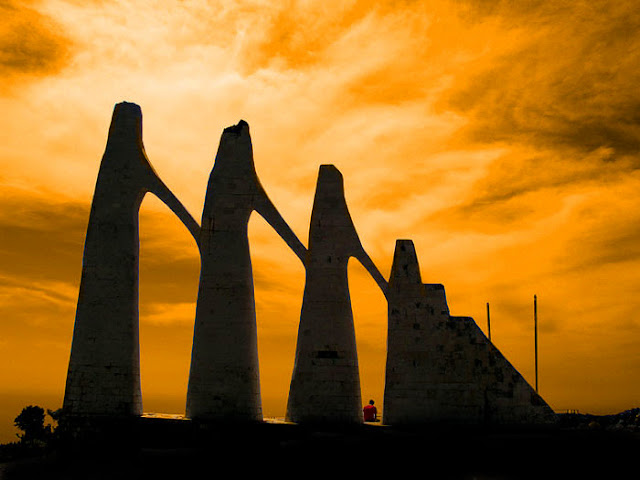Childe Harold wasn't too crazy about those legends of Souliotes: those outcasts of both Greek and Albanian societies, expelled and had nowhere else to go; they are the Robinhoods on the shore, dancing and singing war songs around the campfire. Maybe they'd even kill their prisoners and drink their blood, like how they are described in stories. Simply put, Suli was the last place Childe Harold would willingly be if he had any other choices. And for the first time since he took off, for the first time during his turbulent voyage, he was scared. He felt a shiver down his spine as he feels his damp clothes, as he struggles to keep his weary eyes open.
They're about to anchor, and the rest is at the mercy of fate.
Coming just from Ali Pasha's hub, personally I wouldn't know what to think approaching the Souliotes. This pitiful group of outlaws have been in conflict with the tyrannic ruler since 1803, and there doesn't seem to be a perceivable end. Comparing the two sides, anyone would feel sympathetic to the Souliotes: these are the soldiers without proper food or equipments, whereas Ali Pasha, as we now know very well, is having it all: his luxurious lifestyle, his relentless spending... He was respectful to Lord Byron, we'd learnt about that, but him being hospitable couldn't change Byron's contempt towards him. As for the Childe, he's mostly overwhelmed by the journey by now. The crust of waves pushed his ship up and dragged him down as if to the depth of hell. And when the spirit is low and the body has succumbed to exhaustion, all one asks for is some stillness.

Suli had been the least likely place for Harold to get his blissful rest. But he, along with everyone else on the ship, was surprised by the locals who offered the Childe not only kindness but also stirred up his curiosity, restored his spirit. (It's quite believable that this experience led to Byron's eventual leading in the Greek Independence War, but that's thereby another story.)
It's rather tricky, the work of our hearts. We always feel the most fondness towards those who happened to reach out to us and lend us a hand when we're at rock bottom, even when they're the most unlikely bunch of people we'd make friends with. In universal sorrow we make the strongest bond and form the greatest friendship, though sometimes incomprehensible to the distant spectators. It's all in perspective.
Harold sees unfamiliar faces on people who speak an entirely different language, wearing strange costumes and moving in ways, the meaning of which he couldn't quite grasp. But their kindness opened his heart and he found beauty in their ugliness, forgiving their ungentle characteristics and perceived their vulgar nature as simply something he's yet to familiarize.
In a world without prejudice and hostility, the construction of babel tower would be simple task.
At dusk Harold joins the Souliotes for their feast. The local break out a banquet for the guests from a faraway land, who talks and dresses in a way they wouldn't even try to understand. Their intentions were simple, though might not be understood by the cynical, overly sophisticated minds from "civilized societies": to feed the hungry, to sooth the tired, to care for the poor in spirit, to be merry at the simple happiness and to celebrate the victories in protecting their land.
Sometimes we claim to look at different cultures and different people of the world with an open mind, yet we wears filters through which we speculate the world we live in too much, too constantly that we forgot about them. It takes a lot of courage to rip them off and cast away the standards we're all too familiar with when taking in something new and initially hard to swallow. I guess Harold's situation makes it easier for him, on a distant shore with a wild heart, when there's nowhere else he can turn to.
The Souliotes chant their song as if it's a spell. No doubt they sing it to the gods they worship, but they mostly sing it to themselves, to forget about their tragedies, to sooth their wounds, to gather their courage and to fight on when the sun comes up in the morning.
Byron included a complete translation of the Souliotes' war song in Canto II, which I'll talk more about in the next post. Stay tuned and we'll meet again soon.







No comments:
Post a Comment